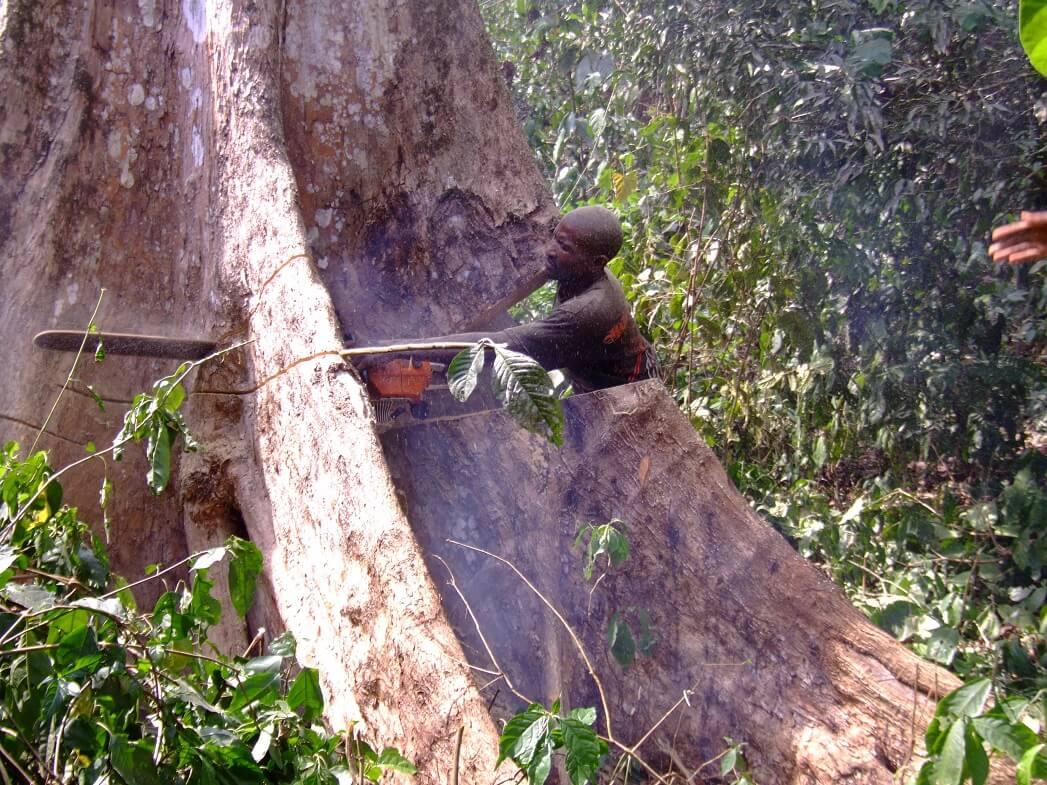- Home
- Worldwide
- CIRAD worldwide
- Projects
- PROFEAAC project
Promoting and formalizing small-scale logging in Central Africa - PROFEAAC

In Cameroon, the informal timber production sector employs more than 45 000 people, three times more than the industrial timber sector © G. Lescuyer, CIRAD
Issues
For two decades, the forest countries of the Congo Basin have implemented policies aimed at managing their forest resources sustainably and alleviating poverty. Those policies centre on large forest concessions, which export what they produce, but overlook the informal small-scale timber production sector that supplies the domestic and regional markets. However, that sector now dominates in terms of the timber volumes produced, and provides jobs and revenue.
As States are increasingly expected to guarantee the legality – and, if possible, the sustainability – of their operations, there is an urgent need for policies to make small-scale timber production practices more sustainable and to formalize the sector.
Description
This overall aim is split into five specific components:
- Establishing low-cost methods for estimating and monitoring the environmental impact (deforestation and forest degradation) of small-scale timber production within forest ecosystems (led by CIRAD and IRD);
- Introducing local measures to regenerate and replant woody and agroforestry species (led by CIRAD);
- Supporting legal small-scale logging and building capacity among operators;
- Ensuring that small-scale timber production is taken into account in strategies aimed at developing decentralized territorial entities, by improving governance of the sector;
- Promoting demand for legally sawn wood on private and public markets.
Those specific objectives will be addressed at four study sites: two in Cameroon and two in the Democratic Republic of Congo. In DRC, the project intends to support small-scale timber production in Tshopo, by promoting its formalization by means of small-scale logging permits and local community forestry concessions. In Cameroon, it will focus on the conditions for the granting of timber logging permits in the Centre region. Its activities will go hand-in-hand with a timber resource regeneration strategy being implemented by the customary owners of trees in rural areas.
Expected impacts
- Forest degradation in central Africa will be more clearly understood thanks to the implementation of a reliable protocol for analysis by remote sensing, accessible to local players. This will improve the drafting and implementation of public and private policies to counter deforestation and forest degradation.
- Farmers at the study sites will have rehabilitated agroforestry plots. The proposed approach will have been documented with a view to its inclusion in public and private policies relating to forest landscape restoration by and for local communities.
Contract partner
CIFOR























